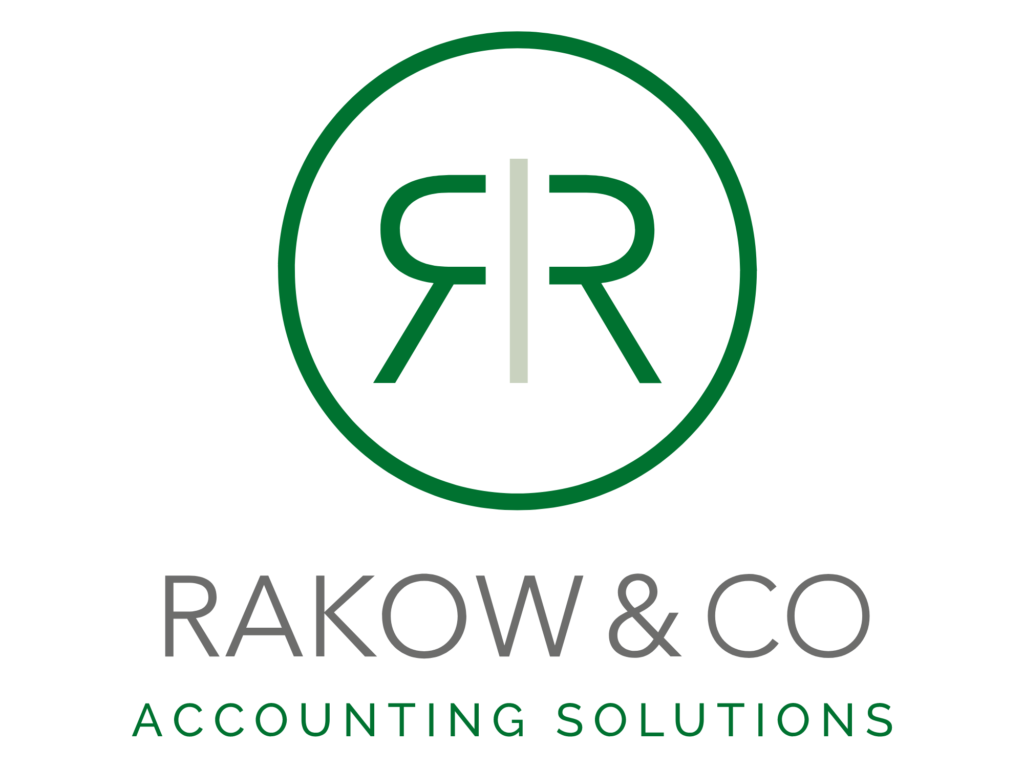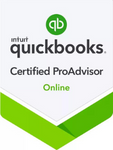When you hire a bookkeeper for your small business, you’re making a strategic decision that can impact your business positively. As a business owner, your time is valuable and should be focused on growing your business.
A bookkeeper’s role goes beyond managing your financial records. They can help streamline your business processes, provide crucial financial insights, and free up your time to concentrate on expanding your firm.
In this blog post, we’ll discuss the many advantages of hiring a bookkeeper. If you’re considering this option or want to understand more about what a bookkeeper can do for your business, this blog is for you.

The Importance Of Professional Bookkeeping
Hiring a bookkeeper is not just about keeping your finances in order. It’s an important step in running a successful business – here’s why:
1. Time Saving
When it comes to running a successful business, time is money. By outsourcing bookkeeping tasks to a professional service, you can free up valuable hours that could be better spent on core business activities.
Instead of getting trapped down by receipts, invoices, and financial reports, you’ll have more time to focus on growing your business and catering to your clients’ needs.
2. Accurate Record Keeping
Keeping your records accurate is very important when it comes to running a business and making decisions. A single error can result in extreme consequences, including legal issues such as tax audits, penalties, fines, and costly financial mistakes.
But when you hire a bookkeeper, they bring their expertise to ensure every transaction is recorded correctly.
Bookkeepers use advanced software to minimize errors, providing you with accurate and updated financial data. This can help you make informed decisions and maintain a positive reputation with stakeholders.
3. Cash Flow Management
Cash flow is considered life flow for any business. If you don’t have a clear understanding of your financial situation, you could be in trouble without even realizing it. A bookkeeper can help manage your cash flow by tracking your expenses, identifying potential issues, and providing strategies to improve it.
You will be able to plan for your future, keep your business afloat, and make necessary adjustments to stay competitive in the market.
4. Compliance With State Business Laws
Every state, including New Jersey, has specific laws and regulations for businesses. These may include tax obligations, licensing requirements, and labor laws.
Navigating these rules can be complex and time-consuming. Hiring a professional bookkeeper who’s familiar with your state’s business laws can help ensure your company remains compliant, avoiding potential fines or legal issues down the line.
5. Reduced Tax Liabilities
Tax season can be a stressful time for businesses, especially if you’re not confident in your record-keeping abilities. A professional bookkeeper can help reduce tax liabilities by ensuring all deductions and credits are accurately accounted for.
They’ll manage your financial records throughout the year, making it easier to prepare accurate, timely tax returns, potentially saving you money on taxes.
6. Cost Savings
Hiring a professional bookkeeper can result in significant cost savings for your business. This may seem counterintuitive as you have to pay for the service, but take a look at the potential costs of errors, missed deductions, or non-compliance with laws. These things can cost you a lot more in the long run.
Furthermore, the time you save can be redirected towards revenue-generating activities. Thus, investing in professional bookkeeping can lead to more efficient financial management and overall cost savings.

What Does A Bookkeeper Do?
As we mentioned earlier, a bookkeeper is more than just a data entry clerk. They provide a range of services that can help your business succeed.
1. They Take All the Paperwork Off Your Plate
From receipts to invoices to bank statements, a bookkeeper will take care of all your paperwork.
They thoroughly analyze and categorize every transaction, making sure everything is accurately recorded. This way you stay always on top of your business finances and make data-driven decisions.
2. They Are Trained To Use Complex Financial Software
Software like Microsoft Excel and Quickbooks are used in the world of bookkeeping. They might not be so user-friendly if you are not familiar with bookkeeping practices. Bookkeepers know how to use software that can help in managing business finances. They stay up-to-date with the latest updates and ensure your financial reports are error-free.
3. They Help You With Day To Day Tasks
As a business owner, you have a lot on your plate – a bookkeeper can help with day-to-day tasks such as sending invoices, paying bills, and reconciling accounts. This frees up your time, allowing you to stay focused on managing your business operations.
4. They Help You With Payroll
Payroll is a complex task that could affect your reputation and could have legal consequences when done incorrectly. When you hire a bookkeeper, they’ll ensure your payroll is always accurate and on time, avoiding any potential issues with your employees.
How Do Bookkeepers Differ From Accountants?
Bookkeepers and accountants play different roles in managing business finances. Bookkeepers handle the day-to-day financial tasks, such as recording transactions, invoicing, and payroll. They ensure accurate, up-to-date records are kept.
Accountants, on the other hand, use this information to analyze the business’s financial status, prepare tax returns, and provide strategic advice. While both are crucial, bookkeepers focus on data management, and accountants on interpretation and strategy.
When To Hire A Bookkeeper For Your Small Business
“When to hire a bookkeeper?” – it’s a common question that often gets asked by small business owners. You can get bookkeeping services at any point in your business’s lifecycle. However, there are certain moments when it’s more important to hire a bookkeeper.
- You’re losing track of your invoices and bills: When you’re constantly misplacing invoices or forgetting to pay bills, it’s a clear sign you need a bookkeeper. They’ll manage these tasks, ensuring nothing slips through the cracks.
- Mistakes frequently appear in your financial records: Regular errors in your records can lead to serious issues. A professional bookkeeper has the skills to maintain your records organized and accurate, reducing the chance of mistakes.
- You’re spending too much time on bookkeeping and neglecting other business tasks: It is not a secret that bookkeeping is a time-consuming task. If it’s consuming most of your time, you may benefit from hiring a bookkeeper so that you can focus on other aspects of your business.
- Your business is growing quickly, and financial transactions are becoming more complex: As your business expands, financial tasks can get complicated. Hiring a bookkeeper ensures these tasks are managed effectively, granting your business smoother operations.
- You’re not confident about tax preparation and compliance: The last thing you want is to make mistakes on your taxes. A professional bookkeeper can help you stay compliant with tax laws, prepare accurate returns, and even suggest tax deductions to help reduce your tax liabilities.

Difference Between Hiring A Freelance Bookkeeper Vs. Working With A Firm
Every business has different budgets and financial needs – so the decision to hire a bookkeeper as a freelancer or work with a firm ultimately depends on your unique circumstances. Let’s take a look at the pros and cons of each and how they differ.
What Is A Freelance Bookkeeper?
As the name suggests, a freelance bookkeeper is an individual who works independently and offers their services to multiple clients.
They may work from home or have a small office, and can typically handle the basic financial needs such as day-to-day bookkeeping, payroll, and tax preparation.
Pros:
- Potentially lower cost compared to working with a firm.
- More control over the hiring process and choosing the right fit for your business.
- Personalized attention and relationship building with one dedicated bookkeeper.
- High-quality work since they work with a small number of clients.
- They work hard to build a good reputation to attract new clients.
Cons:
- Limited availability compared to a firm with multiple employees.
- Limited expertise and resources compared to a firm with a team of experts.
- May not be able to handle complex financial needs or large businesses.
- Qualifications and skill levels may vary among freelancers.
Why Work With A Bookkeeping Firm?
A bookkeeping firm is a company that handles financial records for other businesses. They offer all the services of a freelance bookkeeper and more, such as financial analysis, budgeting, and forecasting.
They have a team of bookkeepers with various qualifications, and they may specialize in specific industries or niches. They often have a larger office space and can handle more clients simultaneously.
Pros:
- More resources and expertise compared to a freelance bookkeeper.
- Available throughout the year, not limited by individual schedules like freelancers.
- Can handle complex financial needs and large businesses.
- Can offer a variety of services and specialized expertise based on client needs.
- Mostly offer dedicated account managers for each client.
- Known for good communication and transparency with clients.
Cons:
- Higher cost compared to hiring an individual freelancer.
- May not be an ideal fit for small businesses with tight budgets.
- May not offer the same level of personalized attention as a freelancer would.
- Difficult to build personal relationships with multiple bookkeepers at a firm.
Which One to Choose?
Picking up bookkeeping cleaning up services for your business, depends on several factors, such as:
- The size of your business.
- The complexity of your financial needs.
- Your budget.
- Your personal preferences and values.
Ultimately, the decision will depend on what works best for your business and its unique needs at that point in time. Each option has its own set of advantages and disadvantages, so it’s important to carefully consider your options before making a decision.
Some businesses may even choose to work with both a freelance bookkeeper and a firm, depending on their needs. The key is finding the right fit for your business and establishing a strong relationship built on trust and communication with your bookkeeping provider.

What to look for in a bookkeeper?
- Relevant Experience: The right bookkeeper for you should have experience in your industry. They should understand the specific financial needs and challenges of your business type.
- Certification: Look for bookkeepers who are certified professionals. This ensures they have the necessary training and knowledge to manage your finances effectively.
- Local Expertise: Each state or region has its own tax laws and regulations and areas like New Jersey present unique regulations and demographics. Specialists with this knowledge can navigate local complexities, offering valuable insights to help your business run smoothly.
- Software Knowledge: A bookkeeper should be familiar with the latest bookkeeping software and tools – this can help streamline your financial processes.
- Adaptability: As your business grows, your financial needs will change. A good bookkeeper should be flexible and adaptable to meet these evolving requirements.
Cost of Hiring a Bookkeeper
Depending on the bookkeeping firm or the bookkeeper you want to hire the cost might vary. This investment covers tasks like record-keeping, financial analysis, and other essential accounting duties.
While it’s an added expense, the benefits of accurate, professional bookkeeping can significantly outweigh the costs by helping you avoid financial pitfalls and make informed business decisions.
In-house Vs Outsourced Bookkeeping Services
- Cost: In-house bookkeepers typically require a full-time salary and benefits, making them more expensive than outsourced services, which are often billed on an as-needed basis.
- Control: In-house bookkeeping allows for more direct control and immediate access to your financial data, while outsourced bookkeeping may not provide the same level of immediacy and oversight.
- Expertise: Outsourced bookkeeping services often have a team of experts with diverse knowledge, providing a range of experience that an in-house bookkeeper may not have.
- Scalability: Outsourcing can be easily scaled up or down according to business needs, whereas adjusting the workload of an in-house bookkeeper may require hiring or layoffs.
In summary, hiring a bookkeeper for your business can provide numerous benefits. A bookkeeper can manage your financial records, handle payroll, help prepare for tax season, and more.
They can also provide valuable insights into your financial health and free up time to focus on other aspects of your business.
Having a bookkeeper in your financial team can significantly contribute to the success and growth of your business. Be sure to consider the qualifications, adaptability, and cost when hiring a bookkeeper, and choose the option that best fits your specific needs.
Looking for a highly trusted and experienced bookkeeping service provider?
Let Rakow & Co. take the pressure off. With our team’s expertise and familiarity with New Jersey laws and regulations, we offer bookkeeping services tailored to your business. Contact us today for a consultation. Let’s start making your financial management stress-free.
FAQs
What qualifications should a good bookkeeper have?
A good bookkeeper should have a strong understanding of accounting principles, proficiency in accounting software, attention to detail, and ideally, a certification from a recognized institution, like the American Institute of Professional Bookkeepers.
Is it safe to share my financial information with an outsourced bookkeeping service?
Reputable outsourced bookkeeping services should use secure methods for data transfer and storage, and they should be willing to sign a confidentiality agreement to protect your business information.
Can a bookkeeper help with payroll in New Jersey?
Yes, many bookkeepers can handle payroll responsibilities, including compliance with New Jersey’s specific payroll tax requirements and regulations.
How often should I meet with my bookkeeper?
The frequency of meetings can depend on your business needs. Some businesses may require weekly check-ins, while others might only need monthly or quarterly updates.
What kind of software do bookkeepers use, and will I have access to it?
Bookkeepers use a variety of software depending on their client’s needs, such as QuickBooks or Xero. In most cases, you should have access to view your financial data in these systems.
How can a bookkeeper help me prepare for tax season in New Jersey?
A bookkeeper can ensure all your financial records are accurate and up-to-date, making it easier to file taxes. They can also help identify deductible expenses, track your payments to the New Jersey Division of Taxation, and keep you compliant with state tax laws.
Do I need a bookkeeper even if I have an accountant working for me?
While there’s overlap, bookkeepers handle daily financial transactions and record-keeping, while accountants provide higher-level financial analysis and tax planning. Many small businesses benefit from both services.
Is a bookkeeper necessary for my small business?
While not legally required, a bookkeeper can provide valuable insights into your financial health, help you stay organized for tax season, and free up time to focus on other aspects of your business.
Are there any specific laws or regulations in New Jersey that affect bookkeeping?
Yes, New Jersey has its own tax codes and business laws that a bookkeeper should be familiar with. For instance, businesses in New Jersey are subject to the Corporation Business Tax Act and must comply with specific filing requirements.





